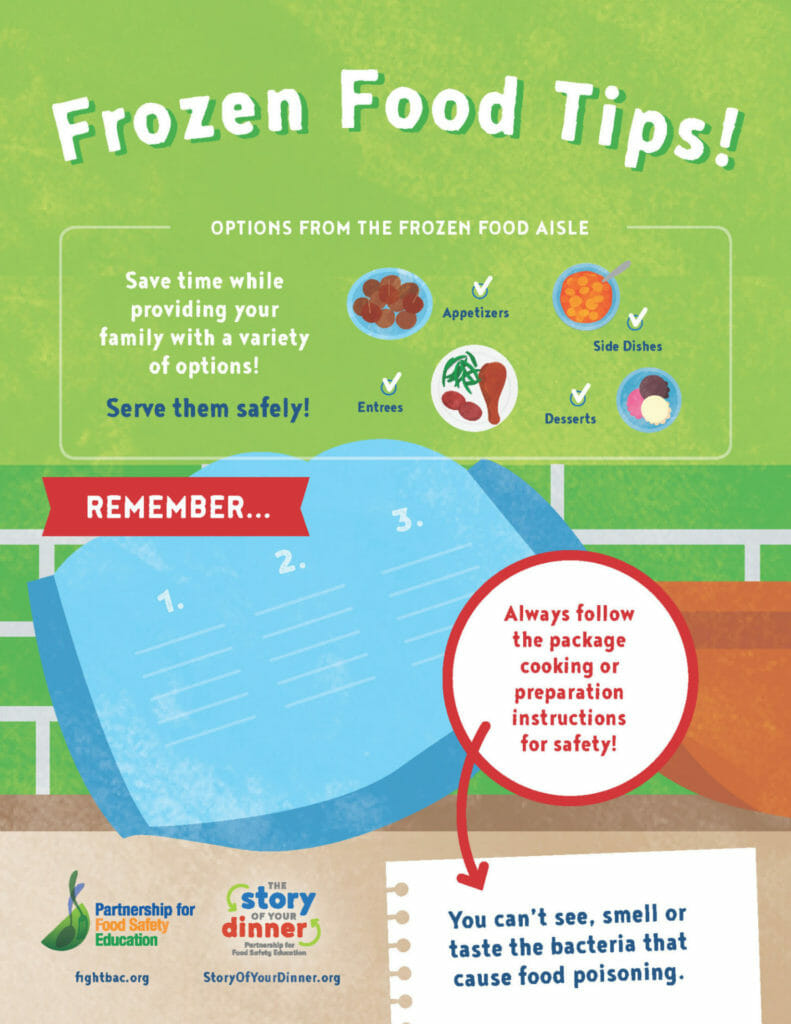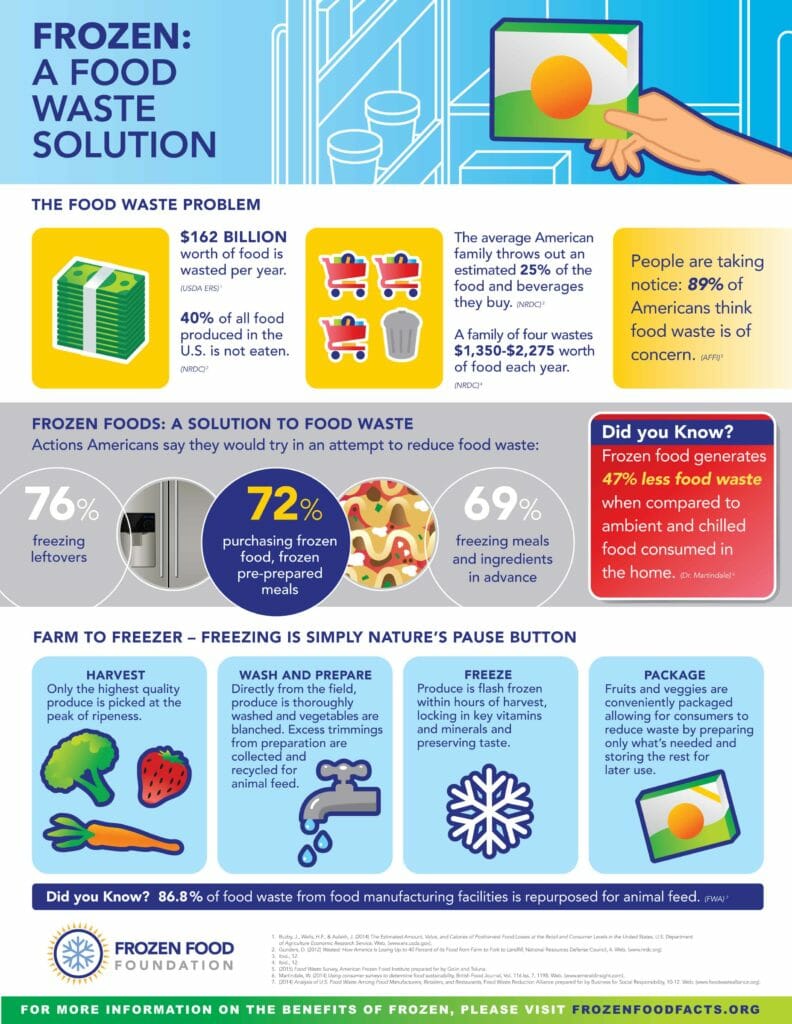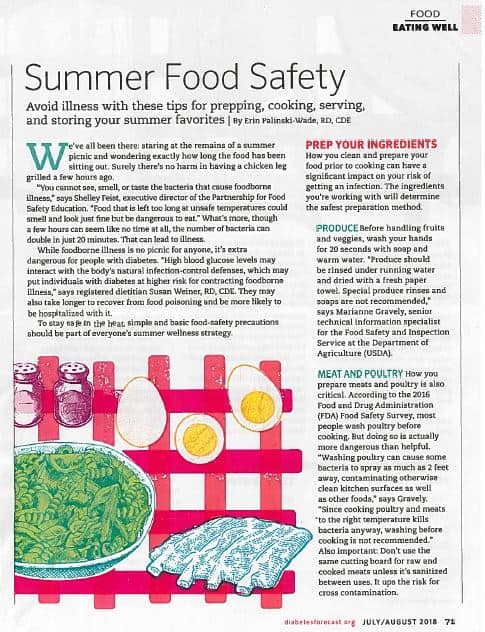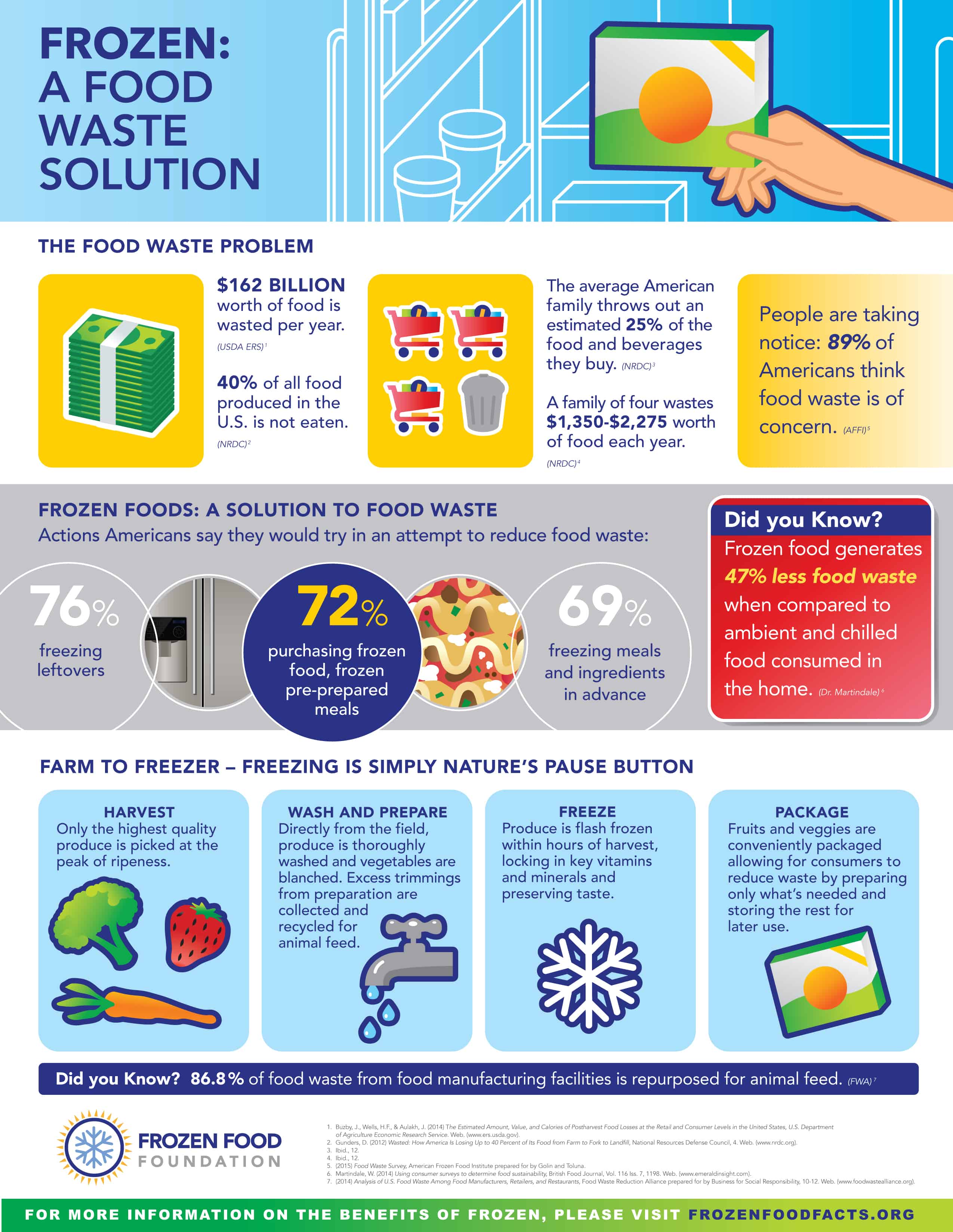The Frozen Food Foundation invites you to take a fresh look at frozen foods and follow the four easy steps (clean, separate, cook and chill) highlighted by The Story of Your Dinner consumer education campaign.
Frozen. How Fresh Stays Safe.
Freezing is nature’s pause button. Freezing simply pauses just-picked and just-baked foods, keeping them at their peak of freshness and locking in their flavor and nutrients.
Freezing, one of the oldest methods of preserving foods, can keep foods fresh for a longer period of time. Freezing is a natural way to keep foods safe by preventing microorganisms from growing and by slowing down the enzyme activity that causes food to spoil. Modern freezing techniques used by fruit and vegetable growers and makers of prepared meals capture and preserve food at the peak of its freshness and nutrient content.
When preparing the variety of options available to consumers in the frozen food aisle, remember to always read and follow the package cooking instructions to achieve the right temperature to make your foods safe and delicious.
Another important tip to remember is if you can’t eat your leftovers quickly, freeze them because cold temperatures slow the growth of harmful bacteria.
Frozen. How Fresh Stays Nutritious.
Did you know that frozen fruits and vegetables are as rich in nutrients and, in many cases, are packed with even higher nutrient levels than their fresh counterparts?
Two Frozen Food Foundation-commissioned studies conducted by the University of Georgia (UGA) and University of California, Davis (UC Davis) reveal that frozen fruits and vegetables are as rich in nutrients, and often more so, than fresh-stored produce.
Frozen. How Fresh Stays Accessible.
About 40 percent of the food produced in the United States each year is never eaten, according to the Natural Resources Defense Council, amounting to about $162 billion lost every year, according to the U.S. Department of Agriculture.
All of this wasted food is staggering considering 17.5 million U.S. households are food insecure.
Frozen foods mean less wasted food and access to well-balanced, portion-controlled nutritious meals in every season and community. In fact, research published in the British Food Journal shows that frozen food generates 47 percent less food waste at home than non-frozen food, so families can save money while still eating healthy meals.
We’ve got your back with safe, nutritious and easy-to-prepare frozen foods.
Dr. Donna Garren, Senior Vice President of Regulatory and Technical Affairs, Frozen Food Foundation







